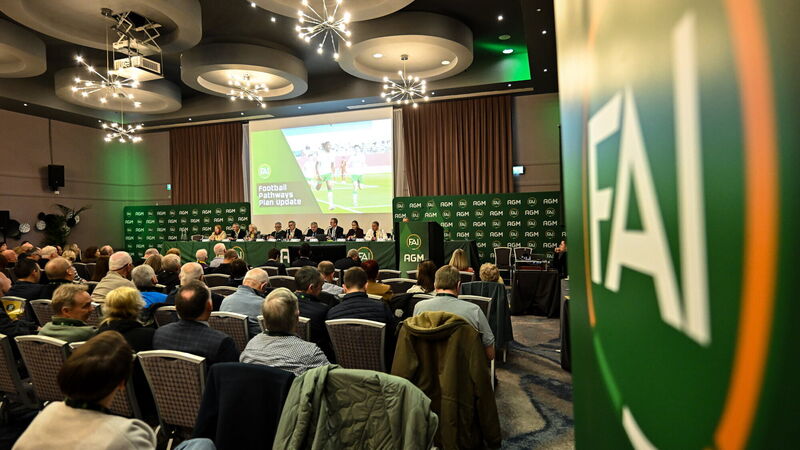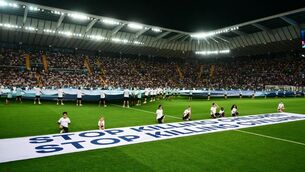Colin Sheridan: Almost right on Israel, the FAI fail to stand its ground

POLITICAL FOOTBALL: The 2025 annual general meeting of the Football Association of Ireland at the Carlton Hotel in Blanchardstown. Pic: Stephen McCarthy/Sportsfile
Of all the things I figured the FAI might be accused of, antisemitism and competence were not two of them. I am fairly certain they are neither. And yet, somehow, they stand on trial for both charges - one absurd, the other unlikely - as Ireland’s football administrators find themselves at the centre of a moral stand they almost accidentally took.
On Saturday the FAI voted to submit a motion to UEFA calling for the suspension of Israel from all European competitions - a move proposed by Bohemians FC, that obstinate, socially conscious Dublin club that has made decency fashionable again. It was, for once, the right kind of politics in sport: an act of moral consistency in a world where football’s leaders tend to mistake silence for neutrality.












